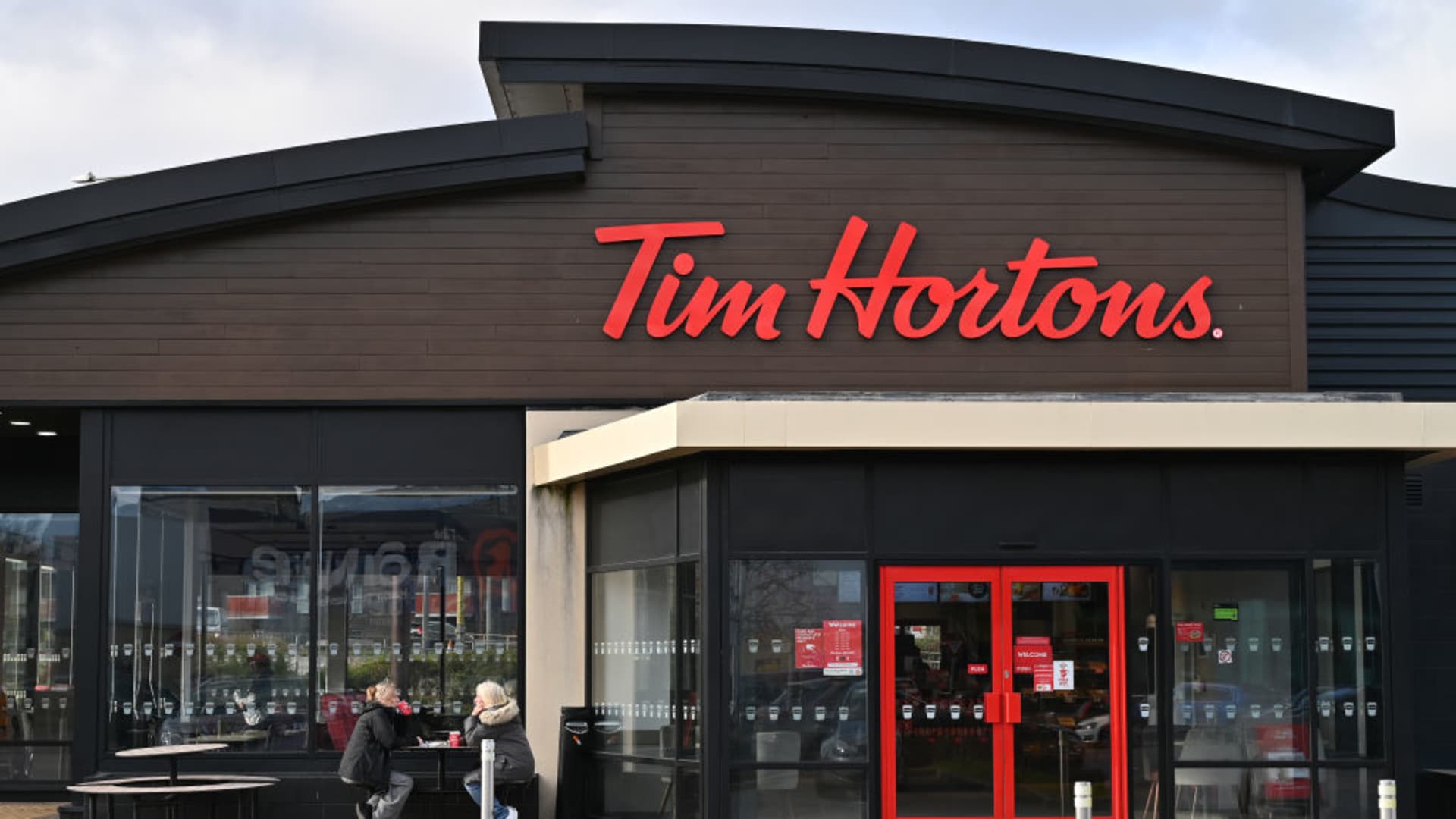
A general view of a Tim Hortons Drive-Thru coffeehouse and restaurant at Lakeside Retail Park on February 5, 2024 in Grays, United Kingdom.
John Keeble | Getty Images
Restaurant Brands International reported quarterly earnings and revenue that beat analysts’ expectations on Tuesday, fueled by stronger-than-expected Tim Hortons sales.
Shares of the company closed down 4% on Tuesday.
Here’s what the company reported compared with what Wall Street was expecting, based on a survey of analysts by LSEG, formerly known as Refinitiv:
- Earnings per share: 75 cents adjusted vs. 73 cents expected
- Revenue: $1.82 billion vs. $1.81 billion expected
Restaurant Brands reported fourth-quarter net income attributable to shareholders of $508 million, or $1.60 per share, up from $229 million, or 74 cents per share, a year earlier.
Excluding items, the company earned 75 cents per share.
Net sales rose 8% to $1.82 billion.
This quarter marks the first time that Restaurant Brands shared its results using its new reporting structure. The company now discloses the results for its individual brands in the U.S. and Canada and lumps all of its international locations together under its “international” segment.
Tim Hortons’ same-store sales increased 8.4% in the quarter, topping StreetAccount estimates of 4.7%. The Canadian coffee chain is typically the biggest contributor to Restaurant Brands’ revenue. While best known for its hot coffee and breakfast food, Tims continued to grow sales of its cold drinks and afternoon snacks, Restaurant Brands CEO Josh Kobza told CNBC.
Burger King reported same-store sales growth of 6.3%. The chain’s U.S. business is now more than a year into a turnaround plan that includes remodeling restaurants and spending more money on advertising. Burger King’s U.S. locations saw traffic growth for the quarter, one sign that the strategy is working.
“That’s something we haven’t seen for a while and is different from where a lot of of our competitors were, so that was a big highlight for me in the quarter,” Kobza said.
Burger King U.S. President Tom Curtis told CNBC that the consumer was resilient in the fourth quarter, but still interested in good deals.
“I think, for us, that was probably one of the reasons behind our relative success in Q4 with the Royal Crispy Wraps,” he said.
Restaurant Brands also recently acquired Burger King’s largest U.S. franchisee, Carrols Restaurant Group, in a $1 billion deal to help the chain renovate locations even faster.
Popeyes’ same-store sales grew 5.5% in the quarter. The fried chicken chain launched chicken wings as a permanent menu item during the period. The wings were the focus of Popeyes’ first-ever Super Bowl commercial, which aired during the game Sunday.
Restaurant Brands reported international same-store sales growth of 4.6%.
Don’t miss these stories from CNBC PRO:







